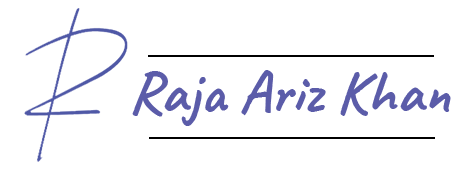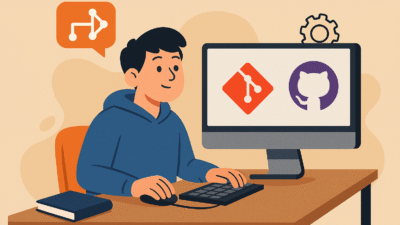If you’re a university student thinking, “What coding skills should I actually focus on before I graduate?”, you’re not alone. It’s one of the most common questions I hear — and honestly, it’s the right one to ask.
Because here’s the truth: your degree alone isn’t going to land you a job anymore.
There’s no shortage of students graduating every year. Some with perfect grades, others with glowing certificates. But when they enter the job market, reality hits — and it hits hard.
So what really makes the difference?
Your skillset. Your mindset. And your ability to build.
In this post, I’m going to walk you through seven essential coding skills I believe every student should develop before walking out of campus gates for the last time. These aren’t fancy buzzwords. These are skills I’ve seen help real people — friends, colleagues break into tech and thrive.
Let’s start with the foundation of all coding careers.
Table of Content
1. Problem Solving with DSA (Data Structures & Algorithms)
Let me be honest — this isn’t the most fun part of coding for many students. But it’s the one that builds your muscle. If you want to become a developer who can actually think and solve problems, not just copy-paste code, DSA is your gym.
Think of arrays, stacks, trees, and linked lists as your basic equipment.
Sorting and searching algorithms? They’re your daily push-ups.
Start with LeetCode or HackerRank. Don’t get discouraged if you don’t understand everything in the beginning — nobody does. But do show up daily. Even 20–30 minutes consistently will make you sharper than 90% of students out there.
And if you’re prepping for job interviews? Trust me, DSA is your secret weapon.
It shows employers you’re not just a scripter — you’re a problem solver.
2. Version Control with Git & GitHub
Why It’s Important
Imagine someone unintentionally deleting the finished version of a group project you’re working on. Or you can’t show off your code when you’re applying for a job. GitHub and Git can help with it.
Learn how to use git init, clone, commit, push, pull, and merge, among other things.
Branch creation and pull request management
Composing heartfelt commit messages
The Reason It Increases Credibility
It demonstrates your commitment, reliability, and teamwork to have a public GitHub profile with active repositories and contributions.
Bonus Tip: Treat your university projects like your digital portfolio by starting them on GitHub.
3. Front-end web development using JavaScript, HTML, and CSS
Why It’s Important
Understanding how the web functions enables you to create tools that are easy to use, regardless of your background as a data scientist or backend engineer.
Things to Learn:
HTML5: Forms, accessibility, and semantic components
Flexbox, Grid, and Media Queries in CSS3
JavaScript: ES6+, fetch API, DOM manipulation
Ideas for Practice Projects:
Create a personal portfolio and use an open API to create a weather app.
Basic user interface clones from websites such as Spotify or Netflix
Why It Changes the Game:
Websites can now be dragged and dropped by non-programmers as well. But programmers who know the inner workings of the web? They are always noticeable.
4. Back-End Fundamentals (APIs, Databases, Server-Side Languages)
Why It’s Essential:
Front-end may look shiny, but the real power lies in the back-end — where data is stored, processed, and delivered securely.
Tech Stack Options:
– Languages: Node.js (JavaScript), Python, Java, .Net or PHP
– Databases: MySQL, PostgreSQL, MongoDB
– API Concepts: REST APIs, CRUD operations, authentication
Real-World Practice:
– Build a blog platform with user login/signup
– Create a REST API for a notes app
– Store user data in a database and retrieve it via endpoints
Why It Builds Authority:
Understanding back-end makes you a full-stack developer — a role that’s always in demand, especially at startups and freelance gigs.
5. Database Design & SQL Mastery
Why It’s Essential:
Every app or software stores data. If you can’t interact with that data efficiently, you’re missing a crucial skill.
Skills to Focus On:
– Writing complex SQL queries (SELECT, JOIN, GROUP BY)
– Designing normalized databases
– Understanding indexes, primary/foreign keys
– Basics of NoSQL (MongoDB) vs SQL
Practice Projects:
– Design a student record system
– Create a mini e-commerce database
– Write queries to generate business reports
Pro Tip:
Being fluent in SQL is often the difference between being hired vs. rejected — especially for roles in analytics, QA, back-end, or devops.
6. Basic DevOps & Deployment Knowledge
Why It’s Essential:
What’s the use of building a great app if it stays only on your laptop?
Knowing how to deploy your projects to the internet shows that you’re capable of full-cycle development.
What to Learn:
– Hosting using Netlify, Vercel, or GitHub Pages
– Backend deployment using Render, Railway, or Heroku
– Basics of CI/CD pipelines
– Introduction to Docker & cloud platforms (like AWS)
Why It Builds Credibility:
When you send a resume and say, “Check out this app I built — [Live Link]” — that’s instant respect.
Bonus Tip:
Always document your project with a README.md — it shows clarity of thought and professionalism.
7. Soft Skills That Make a Hard Impact
Wait, what? Isn’t this about coding skills?
Yes — but let me explain.
Even if you’re the best coder on campus, if you can’t communicate, collaborate, and learn independently, you’ll be overlooked.
Essential Soft Skills for Coders:
– Effective communication (for meetings, clients, documentation)
– Teamwork (especially during hackathons or internships)
– Adaptability (learning new stacks fast)
– Time management (juggling classes, coding, and projects)
Why It Matters:
Technical skills get you interviews. Soft skills get you hired.
Start small: join coding communities, contribute to open source, or mentor juniors. These actions compound fast.
What If You’re Just Starting Out?
Don’t worry — no one masters all seven at once. The goal isn’t to become a coding god in one semester. The goal is direction.
Start with:
1. One language (like Python , .Net or JavaScript)
2. One project idea (like a blog, to-do app, or game)
3. One platform to practice (like LeetCode or GitHub)
Over time, you’ll build skills, confidence, and credibility — brick by brick.
Final Thoughts:
If you’re in university, juggling classes, exams, internships, and life — it’s okay to feel overwhelmed.
Just remember:
– You don’t need to master everything today
– But you do need to start something today
– Show up consistently, even for 30 minutes a day
– Build real projects, not just certificates
– Share your journey — people relate to learners, not know-it-alls
It needs problem-solvers, builders, and learners — and that can be you.
So choose one skill today, go deep, and build something small. Your future self will thank you — and maybe even hire you.
Let’s Connect:
If you found this guide helpful, follow this blog for more deep-dive articles in the Campus To Code series.
I write with one goal: to help students like you turn potential into power — through code.




